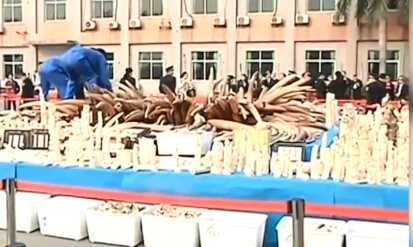China's government says it's finally getting rid of the country's ivory trade once and for all.
中国政府表示将彻底禁止象牙贸易。
The international ivory trade was banned in 1989, but China has one of the largest domestic markets left in the world. The country's now planning to phase out all ivory processing and sales by the end of 2017.
国际象牙贸易在1989年被禁止,但中国拥有最大的国内市场。中国现在计划在2017年底前逐步结束所有象牙加工和销售。
That's important for conservationists because legal ivory markets often fuel demand for poaching and the illegal ivory trade.
这对于生态保护主义者来说是重要的,因为合法的象牙市场往往会激起偷猎和非法象牙贸易需求。

And poaching is still devastating elephant populations in Africa. The Great Elephant Census estimated the African elephant population dropped 30 percent from 2007 to 2014, to around 350,000 elephants.
偷猎仍在毁灭非洲大象种群。大象普查估计,非洲大象的数量从2007年到2014年下降了百分之30,到约350,000头。
Similar blanket bans on ivory trading were adopted this year by the U.S. and Hong Kong, two major markets for legal and illegal ivory
今年美国和香港也采取了类似的全面禁止象牙贸易,这是合法和非法象牙交易的两大主要市场。
译文属可可原创,仅供学习交流使用,未经许可请勿转载。












